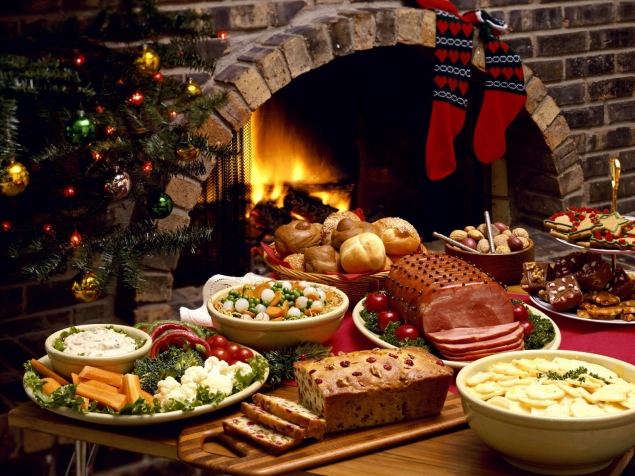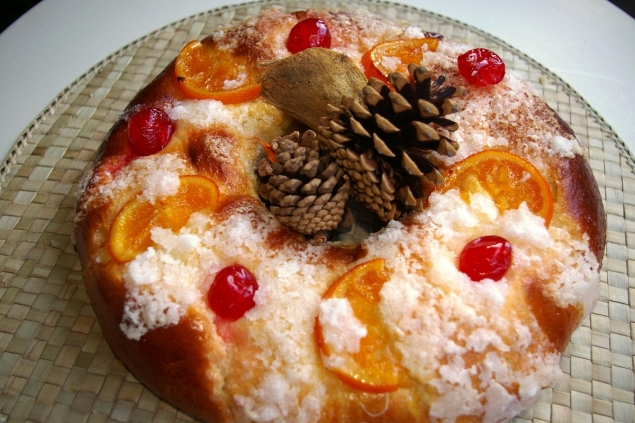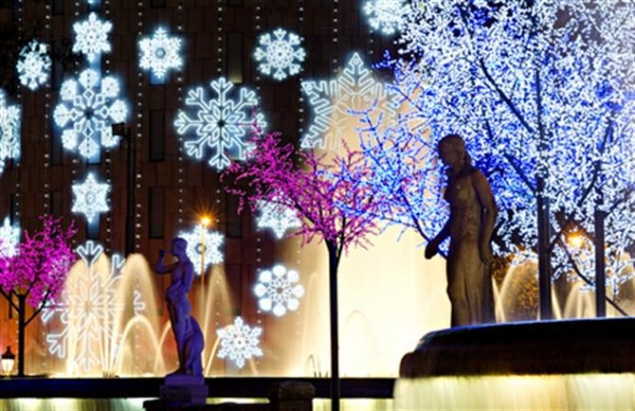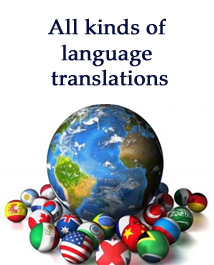Christmas in Catalonia
Christmas is the most magic period in the life of any person independent of age. A sensation of a coming miracle, that is sure to take place at this time, always lives in our souls.
Catalonia is a catholic country, so Christmas holiday is treated with great love and the traditions are carefully observed here.
In November streets already start to be decorated with the illumination in the shape of bizarre winter patterns of snowflakes. Huge constructions in the form of Christmas trees are installed in the main squares of all Catalan towns. Shop windows start blinking festively, tempting with promising discounts. Though the weather in Catalonia is usually warm at this period, the exciting chill of the coming holidays is anyway creeping through the winter topic, which is gradually possessing the country.
On December,13 – St. Lucia’s Day – all Catalonia makes a model of Jesus Christ’s birth place. A lot of families go to the forest in search of moss and other kinds of the natural material. Such models are installed in churches, houses, schools, even in shop windows.
In Catalonia they have invented a funny figure of a shitting person (El Caganer), that is usually put into one of the corners of the model for eliminating the dramatic effect of the scene. Well, such is the local sense of humor!
These days children are impatient to ask El Tio for presents. El Tio – is a piece of a tree trunk with eyes and a smile painted on its cut off. Before the Christmas Eve children zealously feed El Tio with different tasty things. Just on Christmas Eve children beat El Tio with a stick and while singing, ask it to give them some presents. At night their parents put sweets and toys around El Tio. Next morning children run to collect them in joyful anticipation.
Unlike the rest of Spain, where people get together for the festive supper of December, 24 (Nochebuena), Christmas church service (Missa del Gall) takes place all over Catalonia. It is the next day – December, 25 – that Catalan families unite for Christmas dinner. All people hurry to gather with their dearest and nearest on that day. That is why the Catalan proverb says: “For Christmas every sheep goes to its sheep-cot” (“Per Nadal cada ovella al seu corral”). Families gather at the table, where the most delicious meat soup with traditional Christmas pasty shells (Sopa de Galets) is waiting for them. Next comes meat assortment and for dessert – pipe-shaped biscuits (Neules), melting in the mouth, turrons (sweet bars of chocolate, almond, raisins, etc.) and local champagne, so much loved by the Catalans. Next day they visit friends and relatives. The dish of that day is called canelons (a kind of pancakes with meat).
December, 28 in Catalonia is a Day of Jokes. Mass media actively supports this tradition by publishing fake pieces of news, which are often difficult to distinguish from real ones.
Seeing the New Year in usually takes place at home in a cosy family circle or in an impetuously joyful crowd in town squares with illumination, fireworks and champagne. Those who wish it, go at the dawn to the most eastern point of the country – Cap de Creus – for meeting the sunrise of the first day of a new year and for making a wish there.
On January, 6 all Catalonia celebrates The Day of Three Kings (Els Reis). In religious world this holiday is known as Epiphany (The Three Wise Men’s Worship). The day before festive processions of the Kings – Melcior, Gaspar and Baltasar (the last one represents the ethnic minority: he is dark-skinned) – take place in all towns and villages. Children scream with joy at the sight of luxurious carriages and royal suite, distributing caramels. More presents wait for kids at home and the next day is also at their disposal according to the tradition: they need to test, to play and even – oops! – to break new toys. On that day Catalans eat an incredibly delicious pie filled with marzipan or pumpkin jam or fruit confiture, sprinkled with cedar nuts and almond (it depends on the place where a pie is made). But the main intrigue is that there is a small porcelain figure of a king baked inside a pie (to the delight of kids and to the joy of dentists). The one who finds this figure, is solemnly put a carton crown on and is proclaimed a king or a queen of the table.
During all Christmas period a performance of “Little Shepherds” (“Els Pastorets”) takes place in Catalonia. It is a play about an eternal fight of Good (Little Shepherds) and Evil (the Devil). By the way, this performance has become a career start of a lot of modern actors in Catalonia.
When you are walking along the narrow streets of Old Girona or Barcelona, decorated with Christmas and New Year symbolic things, you can clearly feel the connection with different periods of time tightly interlaced here and especially well felt in this miraculous period of a year, called Christmas time.








Add new comment